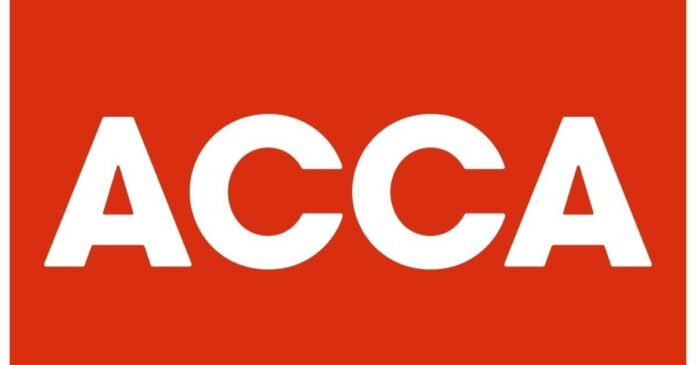
LAHORE, 23 May 2025 — ACCA (the Association of Chartered Certified Accountants) Pakistan has officially released its comprehensive Budget Proposal for the fiscal year 2025–26, presenting a well-rounded, reform-oriented roadmap to strengthen Pakistan’s taxation system and promote sustainable economic growth.
This proposal reflects over a decade of engagement with Pakistan’s fiscal reform process and is informed by extensive consultation with ACCA’s Members’ Network Panel (MNP), comprised of experienced finance professionals from leading firms and industries across the country. This year’s document also includes insights from ACCA’s key Professional Insights (PI) reports, including Tax as a Force for Good, Public Trust in Tax, Technology and Tools of Tax Administration, and Business Confidence Survey, providing a rich global context to the local challenges.
“ACCA’s tax tenets stress simplicity, certainty, efficiency, and fairness. Our proposals reflect the voice of our members working across diverse sectors in Pakistan and are grounded in both international best practices and local realities,” said Assad Hameed Khan, Head of ACCA Pakistan.
“ACCA’s budget proposal recognises the urgent need for systemic reform and a vision for a self-reliant and prosperous economy. It sets out a clear, practical pathway for transforming Pakistan’s taxation system into one that not only raises revenue but actively enables economic opportunity and citizen trust,” said Aucky Pratama, Executive Director – Asia Pacific, ACCA.
“Haroon A Jan”, Head of Member Engagement ACCA, added: “This proposal is a reflection of the collective insight of our professional community in Pakistan. We’ve worked hard to ensure that the recommendations are practical, policy-relevant, and guided by ACCA’s global best practices, while staying grounded in the realities of Pakistan’s tax and economic landscape.”
Key Highlights of the Proposal:
- Simplification: Proposal to establish an independent Tax Law Simplification Commission, building on international models like the UK’s Office of Tax Simplification and India’s Direct Tax Code initiative.
- Certainty: A proposed 3–5 year Tax Policy Roadmap to improve predictability, support business planning, and attract investment.
- Openness & Transparency: Recommendation for a Taxpayer Engagement & Transparency Portal, modelled on Canada’s CRA and the UK’s HMRC public consultation mechanisms.
- Fairness: Harmonised tax rates for salaried and non-salaried individuals, equitable treatment of sportspersons and professionals, and a 35% marginal tax rate for income exceeding PKR 50 million.
- Incentivisation: Targeted tax relief for IT and AI-based R&D, green economy investment, and documented trade (e.g., Section 65A restoration).
- Digital Enablement: Expansion of mandatory e-filing and POS integration, with support from global examples like Estonia’s e-Tax Board and India’s AI-driven tax audits.
- Dispute Resolution Reform: Proposal to reinstate judicial neutrality by appointing tribunal members through the Federal Public Service Commission (FPSC).
- Accountability: Establishment of an Independent Tax Oversight Body, following the models of TIGTA (US) and Australia’s Inspector-General of Taxation.
Strategic extracts from ACCA’s global Professional Insights reports are included in the proposal to link policy with global best practices and thought leadership.
- Top 3 Roadmap Priorities: The proposal now includes a structured roadmap for the three most urgent reforms—Tax Law Simplification, Policy Certainty, and Real Estate Valuation Reform.
- Professional Credentials: The proposal leverages the expertise of ACCA’s Members’ Network Panel and includes a spotlight on global tax experts who contribute to ACCA’s knowledge base.
“This document reflects our intent to contribute not just as technical advisors, but as partners in Pakistan’s economic development journey,” said Rauf Ali Jan FCCA, Chairman of ACCA Pakistan’s MNP and Head of the Taxation Subcommittee.
ACCA reiterates its willingness to work alongside public institutions, businesses, and civil society to support a fiscally sustainable and investment-friendly environment. The full proposal is available on request and will be shared with key stakeholders and decision-makers in the coming weeks.






































